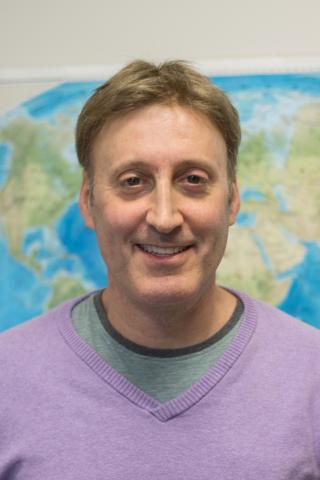
Research Interests:
- Climate and Biogeochemical Modeling
I am a climate and biogeochemical modeler who studies terrestrial ecosystems. I received my B.A. in physics and astronomy from Swarthmore College in 1987, my M.S. in geology from the University of Colorado – Boulder in 1991, my Ph.D. in geology from Brown University in 1995, and a postdoctoral fellowship at the National Center for Atmospheric Research (NCAR) in Boulder. Following my postdoctoral research, I worked as a Project Scientist for the U.S. National Assessment of the Potential Consequences of Climate Variability and Change, spent the next year as an assistant project manager for the hydrological component of NOAA’s Office of Global Programs (OGP), and in 2001 became a research associate at the Ecosystems Center of the Marine Biological Laboratory in Woods Hole, MA. I spent the spring of 2008 as a Visiting Professor of Geology at Oberlin College, and started my current position as an Assistant Professor in Earth and Environmental Sciences at Lehigh in August, 2008, becoming an Associate Professor in 2015. My recent work has involved modeling the effects of land use and land cover change in the context of climate warming and elevated CO2, nitrogen deposition, and ozone for the U.S. since the 1700s. I have looked at how climate extremes like droughts and wet events affect ecosystem productivity and carbon dynamics. I also worked on a project with anthropologists to determine the effect of climate extremes on socioeconomic responses and societal adaptations to food shortages. I currently have three graduate students who are 1) comparing tree ring basal areas and isotopes with biometric biomass and eddy covariance fluxes to better model insect and fire disturbances in the NJ Pinelands, 2) effect of land use on carbon sequestration in the Lehigh Valley and how that affects underrepresented communities with respect to Bethlehem’s Climate Action Plan, and 3) effect of future warming and drought on transition of forest to shrubland or grassland in the Western U.S.
